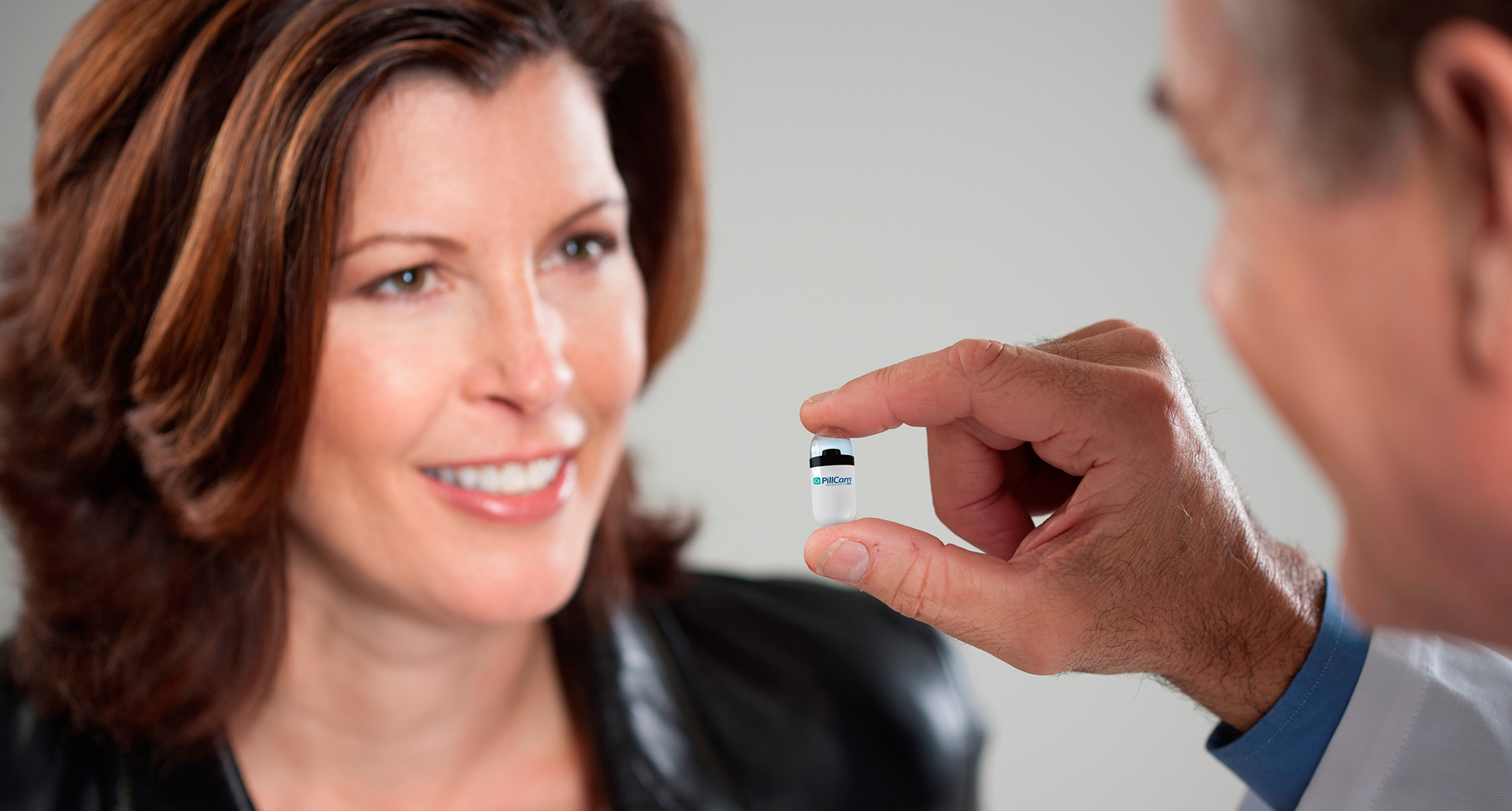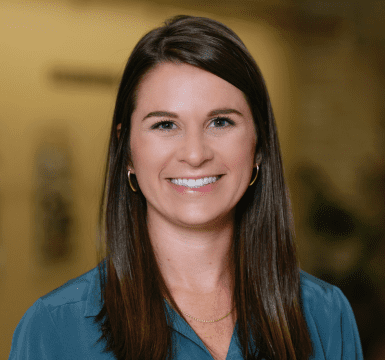
Overview
Capsule endoscopy is a procedure that uses a tiny wireless camera called a PillCam to take pictures of your digestive tract. A capsule endoscopy camera sits inside a vitamin-size capsule you swallow. As the capsule travels through your digestive tract, the camera takes thousands of pictures that are transmitted to a recorder you wear on a belt around your waist.
Capsule endoscopy helps providers see inside your small intestine — an area that isn’t easily reached with more-traditional endoscopy procedures. Traditional endoscopy involves passing a long, flexible tube equipped with a video camera down your throat or through your rectum.
Why it’s done
Your provider might recommend a capsule endoscopy procedure to:
- Find the cause of gastrointestinal bleeding/anemia. The most common reason for doing capsule endoscopy is to explore unexplained bleeding in the small intestine.
- Diagnose inflammatory bowel diseases, such as Crohn’s disease. Capsule endoscopy can reveal areas of inflammation in the small intestine.
- Diagnose cancer. Capsule endoscopy can show tumors in the small intestine or other parts of the digestive tract.
- Diagnose celiac disease. Capsule endoscopy is sometimes used in diagnosing and monitoring this immune reaction to eating gluten.
- Do follow-up testing after X-rays or other imaging tests. If the results of an imaging test are unclear or inconclusive, your doctor might recommend a capsule endoscopy to get more information.
Risks
Capsule endoscopy is a safe procedure that carries few risks. However, it’s possible for a capsule to become lodged in your digestive tract rather than leaving your body in a bowel movement within several days.
The risk, which is small, might be higher in people who have a condition — such as a tumor, Crohn’s disease or previous surgery in the area — that causes a narrowing (stricture) in the digestive tract. If you have abdominal pain or are at risk of a narrowing of your intestine, your doctor likely will have you get a CT scan to look for a narrowing before using capsule endoscopy. Even if the CT scan shows no narrowing, there’s still a small chance that the capsule could get stuck.
If the capsule hasn’t passed in a bowel movement but isn’t causing signs and symptoms, your doctor might give the capsule more time to leave your body. However, a capsule causing signs and symptoms that indicate bowel obstruction must be removed, either by surgery or through a traditional endoscopy procedure, depending on where the capsule is stuck.
How you prepare
Before your capsule endoscopy, your provider is likely to ask that you take steps to prepare yourself. Be sure to follow your provider’s instructions in preparing for your capsule endoscopy.
Failure to follow the directions may mean that your capsule endoscopy has to be rescheduled.
Food and medications
To help the camera capture clear images of your digestive tract, you’ll be asked to have a clear liquid diet the day before your procedure and to stop drinking by midnight the night prior to the procedure. In some cases, your provider may ask you to take a laxative before your capsule endoscopy to flush out your small intestine. This has been shown to improve the quality of the pictures collected by the capsule’s camera.
To keep medication from interfering with the camera, your provider might ask you not to take certain medications 2 hours before having the exam.
Other precautions
In most cases, you’ll be able to go about your day after you swallow the camera capsule. But you’ll likely be asked not to do strenuous exercise or heavy lifting. If you have an active job, ask your provider whether you can go back to work on the day of your capsule endoscopy. Do not get an MRI or be within an MRI field within 30 days of the procedure unless an X-ray confirms passage of the capsule.
What you can expect
Before the procedure
On the day of your capsule endoscopy, your health care team will review the procedure. You wear the recorder on a special belt around your waist over a cotton shirt. The camera sends images to the belt on your abdomen, which feed the data to the recorder. The recorder collects and stores the images.
The Western Wisconsin Health surgery department will contact you with further instructions and arrival time. If you have questions, please contact us at 715-684-1313.
During the procedure
Once the recorder is connected and ready, you swallow the camera capsule with water. A slippery coating makes it easier to swallow. Once you swallow it, you shouldn’t be able to feel it.
You’ll then go about your day. You can drive, and you might be able to go to work, depending on your job. Your doctor will discuss restrictions — for example, avoiding strenuous activity, such as running and jumping — with you.
After the procedure
Wait four hours after you swallow the capsule to resume drinking (non-red) clear liquids. After six hours, you can have a light snack unless your provider tells you otherwise such as crackers, string cheese, piece of fruit, etc.
The capsule endoscopy procedure is complete after eight hours or when you see the camera capsule in the toilet after a bowel movement, whichever comes first. Follow your provider’s instructions for returning the equipment. You can flush the camera capsule down the toilet.
Once the procedure is finished, your body might expel the camera capsule within hours or after several days. Each person’s digestive system is different. If you don’t see the capsule in the toilet within two weeks, contact your provider. Your provider might order an X-ray to see if the capsule is still in your body.
Results
The camera used in capsule endoscopy takes thousands of color photos as it passes through your digestive tract. The images saved on the recorder are transferred to a computer with special software that strings the images together to create a video. Your provider watches the video to look for abnormalities within your digestive tract.
It might take a few days to a week or longer to receive the results of your capsule endoscopy. Your provider will then share the results with you.






